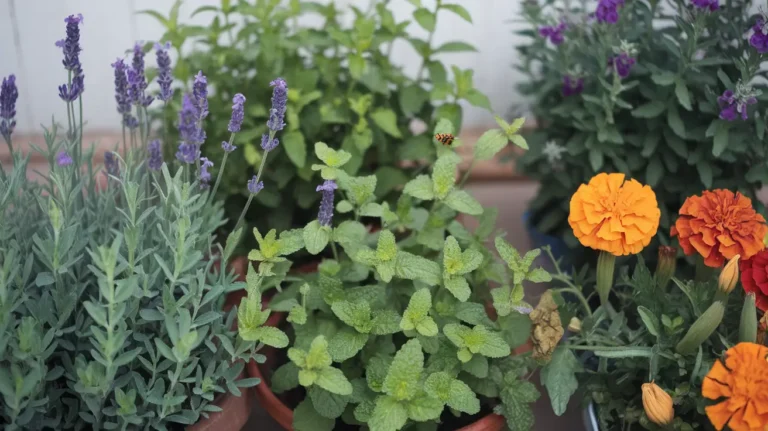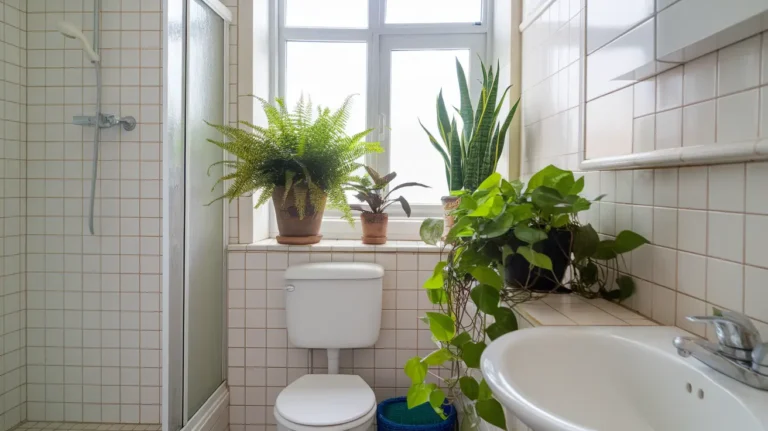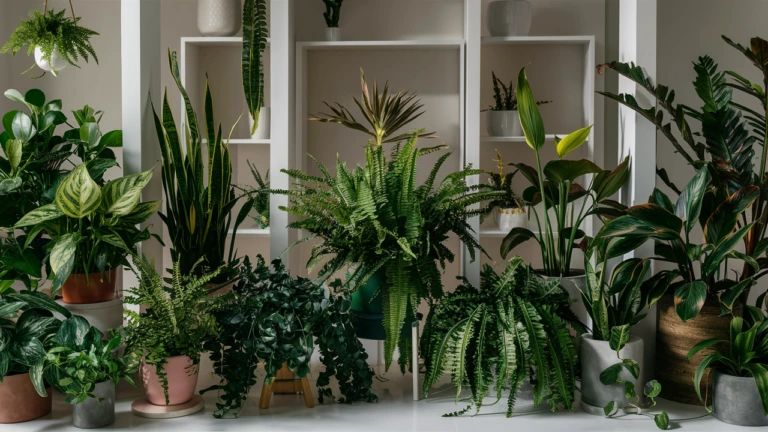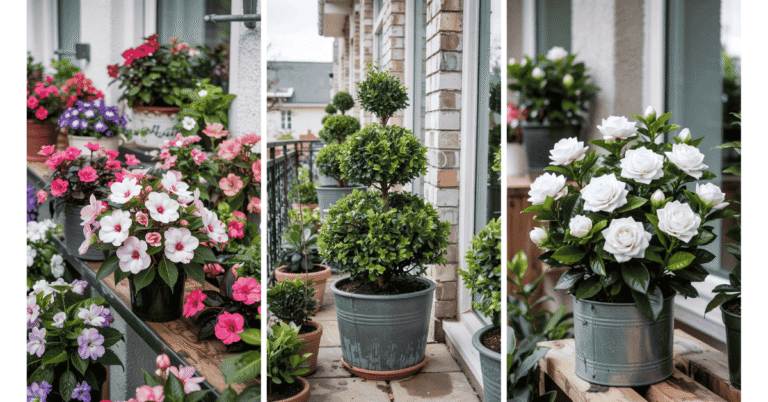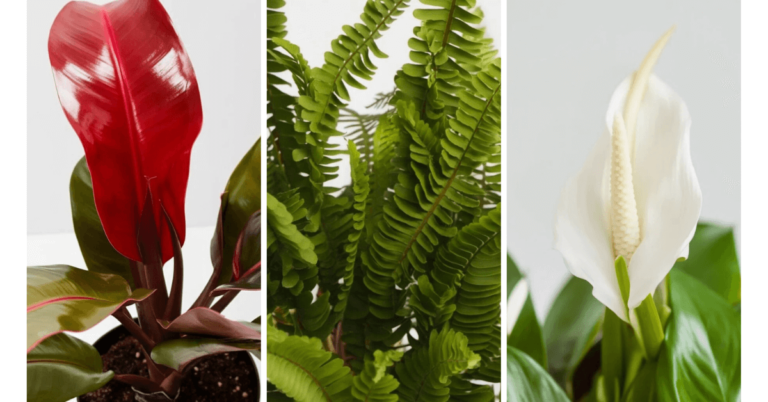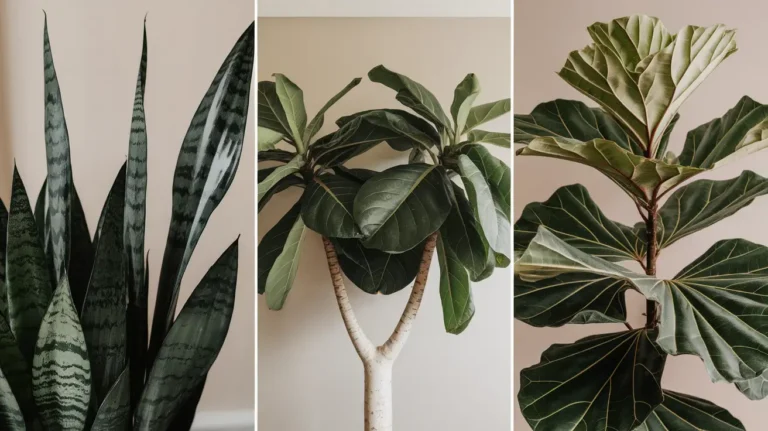Top 17 Plants That Repel Mosquitos Naturally 🌿🦟 Say Bye to Bugs!”

Mosquitoes are more than just a nuisance. While their bites might leave behind itchy welts, they can also carry serious diseases like malaria, dengue, and Zika virus.
If you’ve tried every chemical repellent under the sun, it might be time to turn to Mother Nature for help.
By incorporating mosquito-repelling plants into your garden or home, you not only keep these pests at bay but also enjoy fragrant, beautiful greenery that enhances your space.
Below, we explore 17 plants that are natural mosquito repellents, how to care for them, and tips to keep them thriving.
17 Plants That Repel Mosquitoes
1. Lavender
Known for its soothing and calming scent, lavender is not only a favorite in aromatherapy but also a natural mosquito repellent thanks to its essential oils.
The strong fragrance of lavender, which humans find relaxing, is overwhelming and unpleasant to mosquitoes, making it an effective way to keep them at bay.
Planting lavender in your garden, placing pots around your patio, or even using lavender oil on your skin can help create a mosquito-free environment while adding beauty and a pleasant aroma to your space.
2. Citronella Grass
This classic mosquito repellent is the base ingredient in many sprays, candles, and other insect-repelling products.
Known for its distinct lemony scent, citronella has been a trusted natural solution for keeping mosquitoes at bay for decades.
While synthetic products attempt to replicate its properties, the fragrance of live citronella plants is much stronger and more effective.
By planting citronella in your garden or keeping potted plants around outdoor spaces, you can create a natural barrier against pests while enjoying its fresh, pleasant aroma.
3. Marigolds
Bright and cheerful, marigolds are not just a beautiful addition to your garden—they also serve as a natural pest deterrent. These vibrant flowers are highly effective at keeping mosquitoes, aphids, and other harmful pests at bay.
This is thanks to a natural compound they produce called pyrethrum, which is widely used in many industrial insect repellents.
Planting marigolds around your outdoor spaces or vegetable gardens can help protect your plants while adding a splash of color to the environment.
Their dual purpose makes them a favorite choice for gardeners looking to maintain both beauty and functionality.
4. Basil
This versatile culinary herb not only enhances the flavor of your dishes but also serves as a natural mosquito repellent due to its strong, pungent aroma.
Varieties such as lemon basil and cinnamon basil are particularly effective in keeping these pesky insects away.
Planting basil in your garden or keeping potted plants on your patio can help create a mosquito-free zone, while also providing you with fresh leaves for cooking. It’s a simple, dual-purpose plant that’s both practical and delicious!
5. Mint
Mint is a natural mosquito repellent thanks to its strong, refreshing scent, making it a great addition to your outdoor spaces.
However, it’s important to plant mint in containers or pots, as it’s an aggressive grower and can quickly spread, taking over your garden if left unchecked.
Keeping it contained ensures you enjoy its benefits without worrying about it crowding out your other plants.
6. Rosemary
The woody scent of rosemary is not only a delightful addition to your garden but also serves as a natural mosquito repellent, making it a practical choice for outdoor spaces.
Beyond its pest-repelling qualities, rosemary is a versatile herb that enhances a wide variety of dishes, from roasted vegetables to marinades and sauces.
This hardy plant is drought-tolerant, making it low-maintenance and perfect for busy gardeners, and it thrives in containers, allowing you to grow it on patios, balconies, or even windowsills.
7. Catnip
Catnip contains nepetalactone, a compound that has been scientifically proven to be more effective than DEET in repelling mosquitoes, making it a natural and eco-friendly alternative to chemical repellents.
However, planting catnip in your garden may come with an unexpected side effect—it can attract feline friends who are drawn to its intoxicating scent.
Cats often roll around in or chew on the plant, so if you’re a cat lover, this could be an added bonus!
8. Lemongrass
A close relative of citronella, lemongrass is known for its bold citrus scent that mosquitoes find highly unpleasant, making it a natural choice for repelling these pests.
This hardy plant thrives in warm, sunny climates and grows quickly, reaching impressive heights that can create an attractive visual barrier in gardens or patios.
Beyond its practical use as a mosquito deterrent, lemongrass also makes a lovely ornamental addition to any outdoor space with its tall, graceful blades and fresh aroma.
Additionally, it’s a popular ingredient in many cuisines, prized for its zesty flavor in soups, teas, and dishes.
9. Sage
Burning sage leaves around your campfire is a simple and effective way to keep mosquitoes at bay.
The natural oils in sage produce a scent that mosquitoes find unappealing, driving them away without the need for chemical repellents.
As an added bonus, the smoke from the sage creates a pleasant, earthy aroma that enhances the cozy atmosphere of your outdoor gathering.
Just toss a few sage leaves onto the fire and enjoy a mosquito-free evening surrounded by nature.
10. Lemon Balm
This fast-growing herb, known for its vibrant green leaves, emits a refreshing lemon scent that mosquitoes can’t stand, making it a popular natural repellent. It’s a great addition to gardens, patios, or outdoor spaces where pests are a problem.
However, be cautious when planting it, as its rapid growth can quickly take over your garden if not regularly pruned or contained.
Consider planting it in pots or controlled areas to enjoy its benefits without worrying about it spreading too much.
11. Thyme
Creeping thyme is a versatile and effective plant that works particularly well as a natural mosquito repellent, especially when its leaves are crushed or stepped on, releasing its fragrant essential oils.
In addition to its pest-repelling properties, it serves as an attractive, low-maintenance ground cover, creating a lush green carpet that thrives in sunny areas.
This hardy plant is drought-tolerant and can even withstand light foot traffic, making it a practical and beautiful addition to gardens, walkways, or patios.
12. Bee Balm
Also known as Monarda, bee balm is a vibrant and versatile plant that not only adds a splash of color to your garden but also serves a practical purpose.
Its bright, showy flowers attract pollinators like bees, butterflies, and hummingbirds, making it a favorite for gardeners looking to support local ecosystems.
At the same time, bee balm helps to deter mosquitoes, making it a natural choice for those wanting to enjoy their outdoor spaces without pesky insects.
Easy to grow and low maintenance, this plant thrives in sunny spots and can even be used to brew herbal teas, adding even more value to your garden.
13. Eucalyptus
The oil released by eucalyptus leaves acts as a natural mosquito deterrent, making it an excellent plant choice for repelling pests in your garden or outdoor spaces.
This fragrant oil not only keeps mosquitoes at bay but also adds a refreshing scent to the environment.
If you live in cooler climates, consider opting for container varieties of eucalyptus, which can be easily moved indoors during colder months to protect the plant from frost while still enjoying its benefits.
14. Allium
From garlic to ornamental onions, alliums release a sulfur-based smell that mosquitoes find unbearable, effectively keeping them at bay.
This natural mosquito repellent is produced through compounds in the plants, which humans typically can’t detect, making alliums a practical and pleasant addition to any garden or outdoor space.
15. Scented Geraniums
Lemon-scented varieties are highly favored for their ability to repel mosquitoes, making them a popular choice for outdoor spaces.
These fast-growing plants not only serve a practical purpose but also thrive beautifully in containers, making them easy to place on patios, balconies, or garden beds.
Their vibrant foliage and refreshing citrus scent add a pop of color and a touch of fragrance to your yard, creating a more enjoyable and mosquito-free environment.
16. Lantana
Lantana flowers not only repel mosquitoes, making them a practical choice for outdoor spaces, but they also brighten up gardens with their vibrant, eye-catching blooms in a variety of colors, including red, orange, yellow, pink, and purple.
These hardy plants thrive in sunny conditions and are easy to care for, making them a favorite for gardeners looking to combine beauty and functionality.
17. Garlic
Though not typically grown as an ornamental plant, garlic serves a surprising purpose beyond cooking. When its bulbs are crushed, garlic releases natural sulfur compounds that repel mosquitoes and other pests.
This makes it a useful addition to gardens or outdoor spaces where controlling insects is a priority.
Plus, garlic is easy to grow and can double as a fresh, homegrown ingredient for your kitchen.
Maintenance Tips for Mosquito-Repelling Plants
To ensure your plants thrive and effectively repel pests:
- Water Wisely: Overwatering can lead to root rot, so only water when soil begins to dry.
- Prune Regularly: Remove dead leaves to promote new growth. For herbs, pinch off flowers to keep the plant focused on leaves.
- Choose the Right Location: Place plants near seating areas, entryways, or patios for maximum effect.
- Use Companion Planting: Combine pest-repelling plants with vegetables or flowers to enhance their effectiveness.
- Prevent Standing Water: Standing water attracts mosquitoes, so ensure good drainage near planters.
FAQs
Do these plants completely eliminate mosquitoes?
No, these plants are natural deterrents, but they won’t eliminate mosquitoes entirely. Use them as part of an integrated pest management approach alongside other solutions like removing standing water and using mosquito traps.
Can you grow these plants indoors?
Yes, many of these plants (like mint, basil, and rosemary) thrive in pots and can be grown indoors near sunny windows.
Are any of these plants toxic to pets?
Some plants, like lavender, mint, and garlic, can be toxic to cats and dogs if consumed in large quantities. Be cautious when planting if you have pets.
Conclusion
Adding mosquito-repelling plants to your indoor and outdoor spaces can dramatically enhance your summer experience. Beyond their pest-control benefits, these plants bring beauty, fragrance, and even culinary uses to the table.
Whether you’re relaxing on your patio or hosting a backyard barbecue, these natural repellents help you enjoy the outdoors without the buzz of unwelcome guests.
Start building your mosquito-free oasis today! Pick a few of your favorite plants from this list and see the difference they make.


















